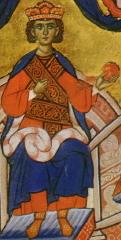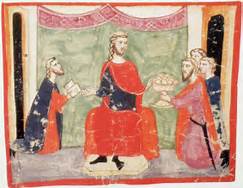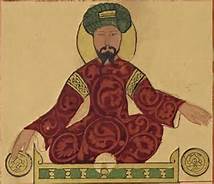Henry I of Cyprus - Part III - The Unappreciated King

Henry shared the historical stage with some of the most colorful and impressive figures of medieval history — Emperor Frederick II, John the “Old Lord” of Beirut, and King Louis IX of France, a Saint. These giants have dwarfed him, and he is largely forgotten or dismissed as unimportant. Yet under his reign, his island kingdom enjoyed peace and prosperity. He fostered trade, defended the rights of his diverse subjects, and avoided squandering Cypriot resources in the defense of Syria. King Henry I of Cyprus deserves a reassessment. The day of his greatest humiliation was also the day on which King Henry came of age. He had been forced to flee in his night-shirt on the back of a borrowed horse, while his entire army was decimated by the Emperor’s troops. Yet on his arrival in Acre as dawn broke, he was, at last, his own man. At fifteen, he was recognized as an adult, no longer tied to guardians, regents, and baillies. This meant that the Lord of Beirut was no longer his guardian and Ba


